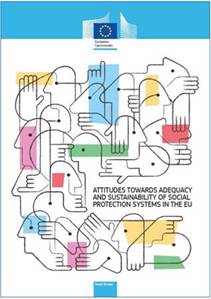New study by our colleagues on the development of CEE countries
Our colleagues, István György Tóth and Márton Medgyesi, have written an overview on how ten Central and Eastern European countries have developed since the Regime change - in terms of economic growth, labour market, inequalities and some well-being indicators. The study was published in the book titled Europe's Income, Wealth, Consumption, and Inequality, published by Oxford University Press. For more information, click here.
 e EU”, commissioned by the Directorate General for Employment, Social Affairs & Inclusion of the European Commission has just been published and made available on the portal of the EC.
e EU”, commissioned by the Directorate General for Employment, Social Affairs & Inclusion of the European Commission has just been published and made available on the portal of the EC.


